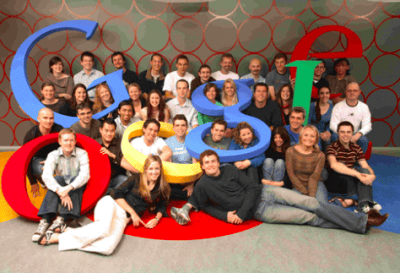Silicon Valley sometimes seems to be playing a game of hot or not. Yahoo’s acquisition of the blogging platform Tumblr was analyzed as a bid to make Yahoo cool again as much as a piece of corporate strategy. New Yahoo CEO Marissa Mayer was supposed to bring the cool of her former employer, Google. But then again, with everyone from the nerdocracy to Saturday Night Live mocking Google Glass, maybe Google-bashing has gone mainstream?
It’s hard to know which companies are hip. So we propose a better test than endless blog post speculation. It starts with an observation about how people associate with their sports teams.
The worst charge you can level at a sports fan is that he or she is jumping on the bandwagon. True fans watch their teams whether they win or lose. But the truth is that we’re all fair weather fans to some extent, playing up our association with sports teams when they are popular and identifying less with them when they lose.
Researchers on college campuses have made this point by counting the number of school sweatshirts worn on campuses of universities with big football teams. They consistently found that many more people wore university apparel if their team won its previous game.
This same principle, that people like to associate themselves with successful and prestigious things, is at work in the language fans use to describe themselves and their teams. After victories and during winning seasons, fans use phrases like “We won” and “our playoff chances.” After losses, fans tend to distance themselves from the currently unhip, vanquished team by using phrases like “They lost the game.” During a study, one distraught Arizona State fan complained after a loss, “They threw away our chance for a national championship!”
Cheerleading of tech companies isn’t common or intense enough (yet) that we can look at whether Google fans are saying “we” or “they.” But we can apply this to employees. If workers view their company as hip, they’ll play up their association with it by wearing company swag or saying “We decided to get more into mobile.” If they don’t, you won’t see a company sweatshirt in the entire office. And you’ll hear about what “they” decided to do.
Want to know once and for all whether Google is losing its cool? Count the number of company sweatshirts being worn by employees getting on the Google bus.
This post was written by Alex Mayyasi. Follow him on Twitter here or Google Plus. To get occasional notifications when we write blog posts, sign up for our email list.




